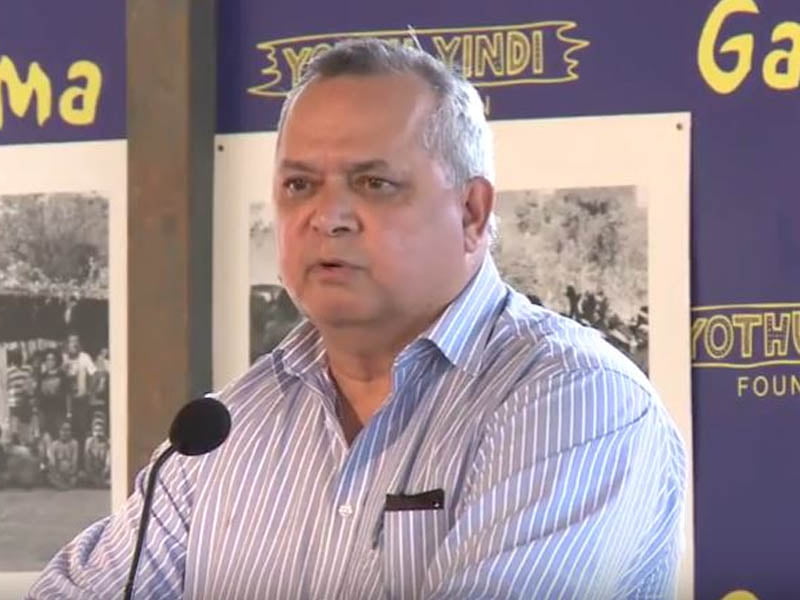The Federal Government should carve out a portion of its $23 million Incubator Support program to build incubators and accelerators targeted exclusively at indigenous businesses and entrepreneurs, according to aboriginal business leader Eddie Fry.
He has also called for the creation of platforms that expose indigenous entrepreneurs to angel investors, venture capital and other forms of funding.
Adelaide-based Mr Fry, who is the chair of Indigenous Business Australia, co-authored a paper on the rise of indigenous entrepreneurs with KPMG partner James Mabbott as part of a series of proposals contained in a new Igniting the Indigenous Economy report.

Mr Fry has had a long career in the resources sector with ASX-listed TNG Ltd. He said he and Mr Mabbott did not have a specific model in mind for what an indigenous incubator and accelerator might look like or where it should be located, but that these design issues should be a matter for further discussion.
But the men did suggest that while it might be useful to have pop-up programs to service regional areas, that fixed-place accelerators would make most sense where there are large indigenous populations such as western Sydney.
“Areas of the economy in which indigenous Australians area already active carry significant potential as providing a basis for existing startup entrepreneurial activity,” Mr Fry and Mr Mabbott wrote in a contribution to the Igniting the Indigenous Economy report.
“Startup entrepreneurial opportunities look likely to abound in areas that indigenous Australians are already economically active in; Think AgriTech, MiningTech and CleanTech.”
“While taking incubator environments to remote and regional areas is important, we should also conscious of the lower hanging fruit: Shifting opportunities to urban Indigenous locations on the fringes of major cities for example,” they wrote.
KPMG Australia chairman Peter Nash, who is also on the board of both Recognition Australia and Koori Heritage Trust, said the issues paper was not meant to be a blueprint, but was presented as a series of ideas for driving economic empowerment among indigenous Australians. Other authors contributing to the report include former Trade Minister Craig Emerson and indigenous affairs advocate and Melbourne University professor Marcia Langton; Former union leader and current KPMG partner Paul Howes and indigenous entrepreneur and lawyer Josephine Cashman on superannuation and financial literacy issues; and KPMG’s Liz Forsyth and NSW central coast indigenous leader Sean Gordon on empowering communities.
Marcia Langton has contributed a couple of chapters, including an excellent piece on tax policy written with Grant Wardell-Johnson. If tax policy is used as an economic weapon in other parts of the economy to encourage – or discourage certain behaviours – then it should be brought to bear on indigenous issues. Specifically, Ms Langton is fighting for the restructure of the investment vehicles used by indigenous communities to hold assets, and then to provide a tax treatment of these assets that encourage the building of indigenous enterprise.
Ms Langton has called for the creation of Indigenous Equity Funds to support aboriginal SMEs. But mainly she wants these business measures put in place with an overhaul of transparency and governance structures, and for both the indigenous and non-indigenous communities to look at the policy frameworks from a commercial perspective – and to stop viewing indigenous entreprise from a place of philanthropy. There are some simple ideas to complex issues in this report, each written by smart people. It is certainly worth a read.
KPMG Australia chair Peter Nash says the “right to a job, or to the capacity to access a job is one of the starting points, a foundational starting point for enabling people to participate in the economy.”
“It seemed to us that while there were some good things happening, there was not enough being done to stimulate a real discussion about economic participation.”
Without diminishing the importance of the debates on issues like constitutional recognition, he said “it is no more important than the discussion about economic empowerment,” Mr Nash said. “We consider it a part of our obligation as a participant in this economy and as a beneficiary of [Australian] prosperity to look at and to think about what some of the solutions and opportunities might be to enable all Australians to participate more fully in the Australian way of life and Australian prosperity more fully.”
The fundamental premise is that economic participation will drive key opportunities. “Participating in the economy and being able to achieve a level of economic empowerment can lead to so many more opportunities – and ultimately break the nexus of the welfare economy,” Mr Nash said.
Do you know more? Contact James Riley via Email.

